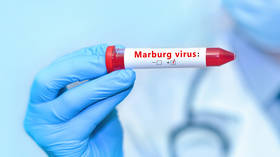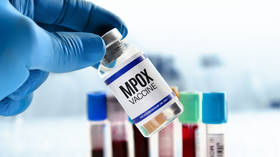African state launches vaccination campaign against deadly disease

Rwanda launched a vaccination campaign against the Marburg virus on Sunday, in response to its first outbreak of the Ebola-like disease, which has claimed 12 lives and resulted in 46 confirmed cases since late September.
The country has received 700 doses of the vaccine from the US-based Sabin Vaccine Institute and is targeting healthcare workers and close contacts of infected individuals.
Health Minister Sabin Nsanzimana announced the launch of the vaccination program at a press conference in the capital, Kigali. “The vaccination is starting today, immediately,” he said, emphasizing the focus on those “most at risk, most exposed healthcare workers working in treatment centers, in hospitals, in ICU, in emergency, but also the close contacts of the confirmed cases.”
Rwanda’s initial batch of vaccine doses will be administered to adults aged 18 and older, as the vaccine has not yet been tested in children. Nsanzimana noted plans to order more doses as part of the country’s response to the crisis.
The Marburg virus is highly infectious and causes a viral hemorrhagic fever similar to Ebola. Past outbreaks have recorded fatality rates ranging from 24% to 88%, according to the World Health Organization (WHO). Symptoms include high fever, severe headaches, vomiting, and diarrhea, with severe cases leading to death through extreme blood loss. The virus is typically transmitted to humans from fruit bats and spreads through contact with the bodily fluids of infected individuals.
The virus was first identified in 1967 following simultaneous outbreaks in laboratories in Marburg, Germany, and Belgrade, Serbia. The outbreak, linked to research on African green monkeys (Cercopithecus aethiops) imported from Uganda, resulted in 31 infections, with seven fatalities.
Marburg outbreaks have previously impacted Tanzania and Equatorial Guinea, where an outbreak was reported in 2023, as well as Ghana in 2022, and Uganda, which saw three deaths from the virus in 2017.













